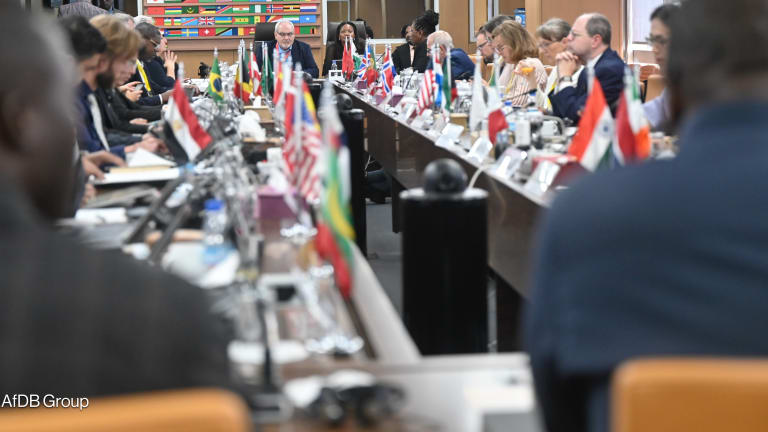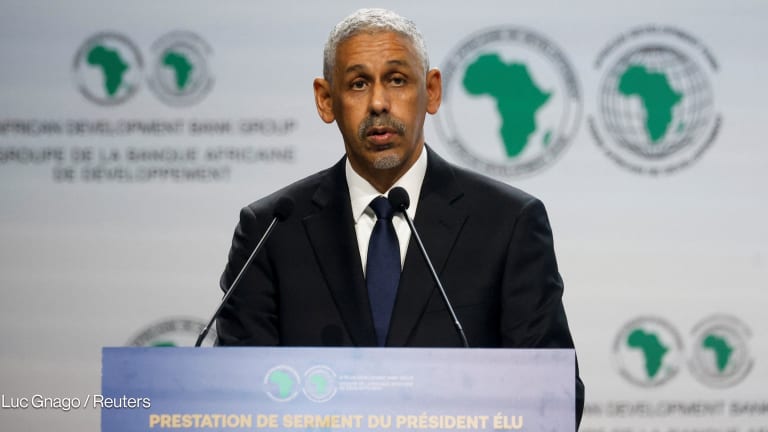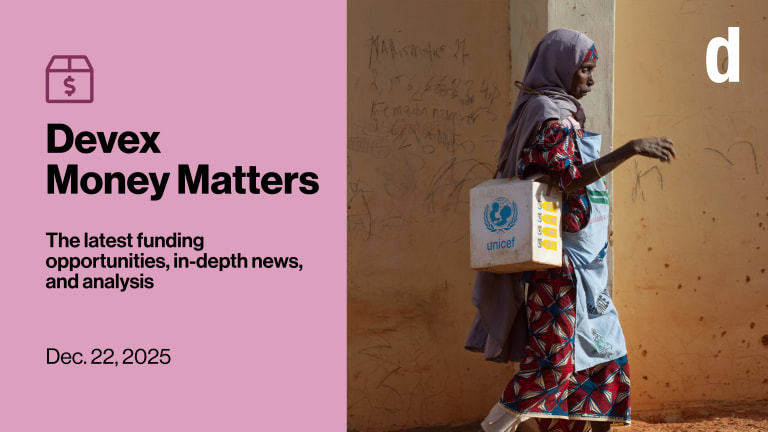
ABIDJAN — Purse-string tightening by traditional international development donors in recent years has prompted the African Development Bank to cast a wider net in seeking aid funding. One of the areas that has seen success, the bank told Devex, is securing financing from philanthropic organizations.
In February, the Rockefeller Trust Fund provided an initial $3 million to support two of the AfDB’s “High 5” development priorities. The financing will go toward the Leadership for Agriculture Platform — in alignment with the “Feed Africa” pillar — and a youth coding skills training program in connection with the “Improving the Quality of Life for People in Africa” pillar.
See more related topics:
► AfDB president says bank has 'finally come into its own' amid reforms
► With 2 new initiatives, AfDB's 'Feed Africa' strategy takes shape
► Webinar: How to work with the African Development Bank
► AfDB's Adesina pushes an all-hands 'High 5' approach to African development
This is the bank’s second formal alliance with a foundation. The first, with the Bill & Melinda Gates Trust Fund in March 2015, funded a study on how to improve connectivity between payment systems and create greater financial inclusion for West Africans, as well as an investment to the Africa Digital Inclusion Fund. Originally $2.4 million, the trust fund now tops $17.9 million due to additional funding by the Gates Foundation.
The bank began seeking financing from such sources following the 2015 implementation of its “guidelines for engagement with non-sovereign entities,” which identified potential partnerships with philanthropic organizations, corporate foundations, and the private sector.
The AfDB’s manager of resource mobilization and partnerships, Valerie Dabady, said this move has forged new relationships and engaged leading organizations already tackling global problems with the latest research and innovative solutions. Dabady said one of the chief benefits of collaborating with philanthropic organizations is “strategic alignment” — the idea that an alliance of like-minded institutions can contribute to greater development in particular areas.
“Their input can also clarify policy decisions which can help us in creating our own work program,” Dabady explained. Donors, for example, have encouraged the bank to support fortified wheat projects and disease surveillance at the Africa Centres for Disease Control and Prevention.
“It is a fantastic way to work with like-minded partners because foundations are already not-for-profit and are there to work on development or ‘for good,’ whether eradicating malaria or providing schooling for girls. And so, for us it represents a very exciting and new chapter in research mobilization and partnerships,” Dabady said.
The department is currently developing relationships with other socially responsible NGOs including the Ford Foundation and the Open Society Foundations. But Dabady added that the AfDB needs to better communicate the tangible results produced from funding in order to sustain and form partnerships with private foundations.
Dabady hopes to work with the private sector in a similar manner in the near future, but with the understanding that it will be different working with groups with a greater focus on profit margins. Those partnerships would require increased scrutiny of a company’s interest in entering African markets, barriers to entry, and the parameters around doing business on the continent.
For example, “if we want the likes of an Amazon to expand to Africa, what will it take to bring them here and what certain aspects are needed for their business to work well here — whether efficient postal services, tax regulations, [or] seamless distribution [of goods] from ports to customer,” Dabady told Devex.
Attracting more private sector investments would also necessitate improved infrastructure in cities, she said. “We have to go back and focus on creating smart cities, which is an amazing thing to push for because it revolves around innovations and making people’s lives easier. So that would be the next thing we want to work on, is how to better partner with the private sector for the benefit of African development.”
As part of the diversification of funding, in recent years the AfDB has also seen an increase in donations from emerging economies including China and India, and less traditional country donors, like Japan, which committed $6 billion in 2017 to fund energy projects through the Japan-Africa Energy Initiative Facility.








